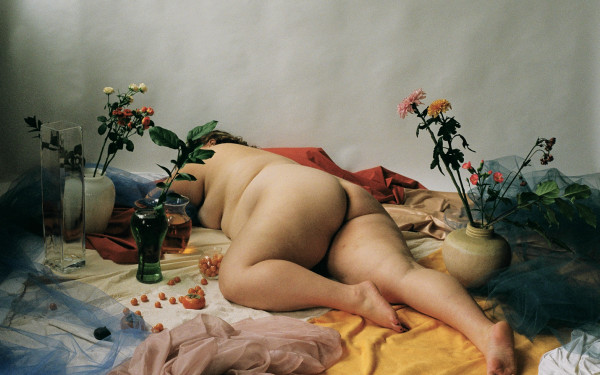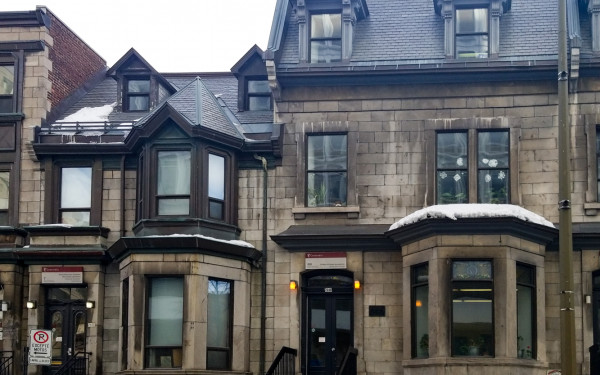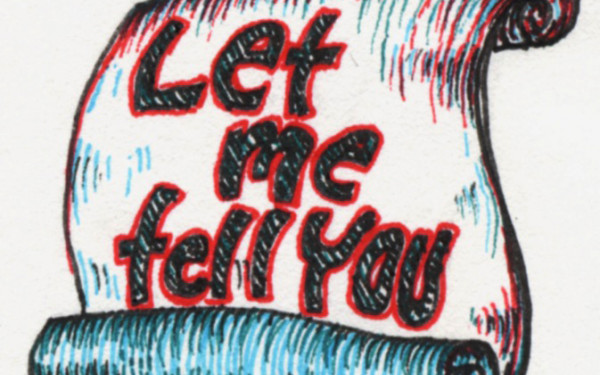Drafting for change: Two years since the Chilean protests
Chilean Montrealers gathered in front of Chilean Consulate to voice their demands
Oct. 18 marked the two year anniversary of the largest protests in Chile’s history. In recognition of those protests, Chilean Montrealers demanded action from the Trudeau administration—who remain silent on the situation.
The group Chile s'est Réveillé Montréal marched in front of the Chilean consulate to commemorate the second year of the revolts in Chile.
Playing traditional Chilean music and waving Indigenous flags, more than a dozen protesters demanded the Canadian government take a stand against Chilean President Sebastián Piñera. The Montreal group sought the end of exploitation in Chile, notably of North American corporations who are said to be taking advantage of the country’s limited economic regulations, plundering the country’s natural resources while depriving local populations of land and wealth.
The 2019 Chilean protests started off as fare evasion by students in response to increasing costs of public transportation and led to a nationwide eruption against social inequality, wealth disparity, and corruption. Piñera controversially put the country under a state of emergency that would arrest thousands through military force and heightened law enforcement.
As a result of the turmoil, a referendum was called to establish a new constitution. While more than 70 per cent of people voted in favor, Piñera remains in power.
Local artist and founding member of Chile s'est Réveillé Montréal, Kathy Alexandra, said the group gathered weekly for an entire year after the Chilean government deployed military troops against protestors in Chile.
“We decided to create this collective to continue those protests because we’re far away from the country, so there’s not a lot that we can do other than being there to support and share the information that a lot of the time is controlled,” Alexandra said.
The group also stood in solidarity with Chilean protesters and political prisoners who have suffered human rights abuses at the hands of state military and law enforcement.
Piñera was indicted last April by the International Criminal Court for crimes against humanity, including various forms of torture, violence, and murders by state officials.
“Since October 2019, Justin Trudeau has never declared anything about Chile, never taken a stance knowing that the president is violating human rights,” Alexandra added. “It’s a shame that a country like Canada is staying silent.
“Private companies go to Chile and buy up all the water leaving people, farmers and the land without water. Everything is dry and the country is dying [...] but they get rich.” — Kathy Alexandra
“We have people who are deputies, who worked in government or who were the right-hand men of [former military dictator] Pinochet and Piñera who are still there, who actually committed genocide and they work in power,” said Elena Tapia, founding member of Chile s’est Réveillé.
Tapia expressed high hopes that a new Chilean constitution will free political prisoners and bring justice to those who committed atrocities against people.
“When I was in Chile last year a lady said to me, ‘Oh don’t look! don’t look!’ I said ‘Why?’ and she says, ‘That’s the guy who tortured me.’ This guy was in the same office where we were going to do our papers. People are forced to face the officials who tortured them and who haven’t even paid for their crimes! Things need to change, and these [officials] need to go to jail,” she said.
Furthermore, a lack of regulation and legal limitations in Chile have resulted in the privatisation of many services including education, health, housing and even water. This has caused increases in inequality and costs of living.
“For [the farming] of avocados, private companies go to Chile and buy up all the water leaving people, farmers and the land without water. Everything is dry and the country is dying [...] but they get rich,” said Alexandra.
Through an election, the Chilean government created a convention for the formulation of a new constitution. The group expressed desire for robust economic regulations that protect the people, with particular emphasis on Indigenous and minority communities.
“We want a new constitution, and we want to make sure that nobody affects this constitution. We want to make sure that the Aboriginal people have their own land, their own police and they live in peace,” Tapia asserted.
Of the 155 elected seats responsible for drafting the legal document, 17 were reserved for Indigenous groups and gender parity was ensured in the process, one of the only assemblies in the world to implement this approach.
“[We want to make sure that] these people will be able to be respected, they’ll be able to have their laws and they’ll be able to actually take care of their land without having somebody push them out of it or kill them for it,” Tapia added.







